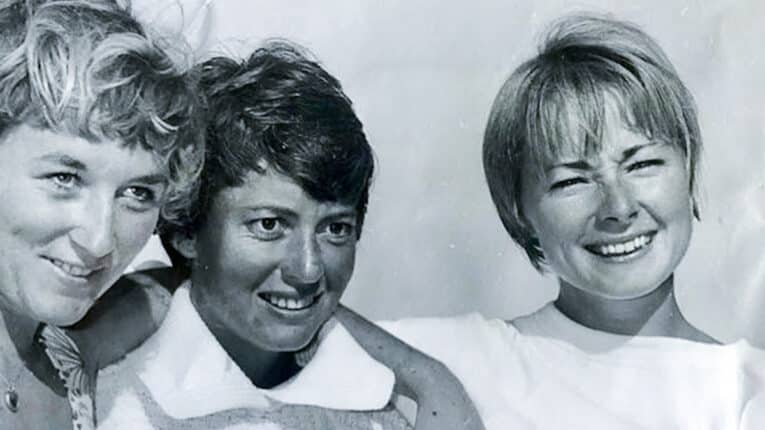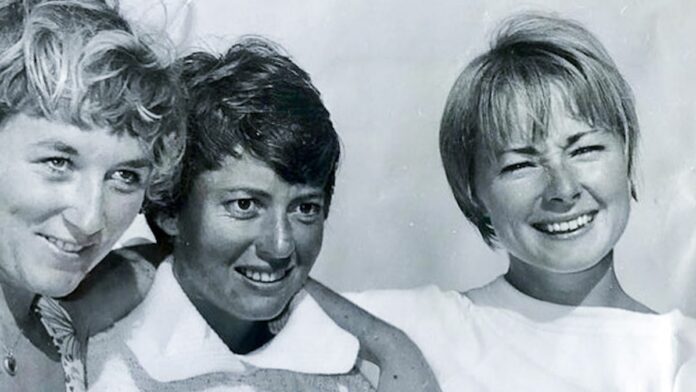
“I can’t think of anyone, at her level, who was
less interested in surfing as a path to money or fame.”
Phyllis O’Donell, who won her final in the 1964 World
Championships at Manly Beach about 45 minutes before Midget
Farrelly won his, and thus became our sport’s first world
champion, died this week at age 87.
She was private and level-headed, intense but funny, upbeat by
nature. Zero pretense. Sure-footed in every sense of the word.
O’Donell loved getting in the water, and for 15 or so years loved
riding waves most of all, and clearly she was ambitious and
goal-driven—but I can’t think of anyone, at her level, who was less
interested in surfing as a path to money or fame.
Back to the ’64 championships. It was a mild late-autumn
Sunday afternoon, with a huge crowd on the beach and along the
seawall. Fun sandbar waves, mostly rights. Sydney-born O’Donell was
the newly-crowned Australian national champion but she paddled out
as a longshot underdog to Linda Benson of San Diego.
Five years earlier, Benson, as a tiny high school sophomore,
hot-dogged her way to victory in the Makaha International, was then
featured in movies and magazines, and had basically become
surfing’s own Doris Day. O’Donell, 27 in 1964, hadn’t yet
started riding waves when Benson won Makaha, and was all but
unknown outside her local beaches.
But roll the film (watch here and
here) and O’Donell, to
my eye anyway, is the more advanced—or at least more fluid and
polished—of the two surfers. She was a fan of Bobby Brown, the
young but doomed regularfooter from
Cronulla, and it shows. Smooth as silk but not above
throwing a spinner or two into the routine.
O’Donell’s win wasn’t a fluke, in other words.
Surfing World editor and filmmaker Bob Evans not only thought
the same, he devoted six paragraphs in his contest write-up to the
women’s final—other publications dashed the women’s event off in a
line or two—lauding Benson and O’Donell both, but ending thus;
“[O’Donell’s] placement in the wave was ideal and her trimming and
arching through the hollow sections was pretty to watch. Every ride
these great girl riders made earned spontaneous applause, [but]
Phyllis O’Donell was a decisive winner.”
What happened after the contest, though, is just as remarkable.
Phyllis smiled and took her trophy, drove home and—did nothing. In
terms of career advancement, anyway.
She continued to surf and compete. She entered the ’64 Makaha
contest. A few years later she would move briefly to
Southern California to work for Dewey Weber Surfboards. She took
third in the 1968 World Championships.
But O’Donell might as well have invented the concept of
life-work balance, and surfing for trophies and titles was in a
gray area but leaning toward work.
This quote, from an interview
Phyllis did in 2000, makes the point:
In 1964, you became the first women’s world champion.
Did it change your life?
I was living in Banora Point [near the Queensland border] at
that time, and it would have been more beneficial career-wise if
I’d moved back to Sydney after winning the world title, but I
wouldn’t do that. I had a good job in the local ten-pin bowling
alley, where I was an assistant manager. I worked two days and
three evenings each week so I could surf a lot. I wrote a surfing
column for the Sunday Mail. So all told I was doing fine.





